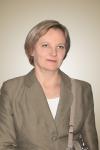References
- Andreeva N. V., Rozhdestvenskaya L. V., Yarmahov B. B. School step into blended learning. Moscow, BukiVedi, 2016. 280 p. (In Russ.)
- Dautova O. B. Changes in the educational and cognitive activity of a student in the educational process. Monograph. St. Petersburg, LEMA Publishing House, 2010. 300 p. (In Russ.)
- Bilenko P. N., Blinov V. I., Dulinov M. V., Esenina E. Yu., Kondakov A. M., Sergeev I. S. Didactic concept of digital vocational education and training. Moscow, Publishing House «Pero», 2019. 98 p. (In Russ.)
- Ignatova N. Yu. Education in the digital age: monograph. Nizhny Tagil, Nizhny Tagil Technological Institute (branch) of the Ural Federal University, 2017. 128 p. (In Russ.)
- Ignateva E. Yu. Pedagogical management of educational activities in the system of developing education. Continuing education. 2016. № 2 (16). P. 17–21. (In Russ.)
- Klingberg L. Learning theory problems. Moscow, Pedagogy, 1984. 256 p. (In Russ.)
- Margolis A. A. What does blended learning mix? Psychological Science and Education. 2018. Т. 23. № 3. P. 5–19. (In Russ.)
- Teaching digital skills: global challenges and best practices: analytical report for the III International conference «More than learning: how to develop digital skills», Sberbank Corporate University. Moscow, Autonomous non-profit organization of additional professional education «Corporate University of Sberbank», 2018. 122 p. (In Russ.)
- Rubinshtejn S. L. Fundamentals of General Psychology. St. Petersburg, Peter, 2002. 720 p. (In Russ.)
- Strekalova N. B. Risks of implementing digital technologies in education. Bulletin of the Samara University. History, pedagogy, philology. 2019. Vol. 25. № 2. P. 84–88. (In Russ.)
- Uvarov A. Yu. [and others]. Difficulties and prospects of digital transformation of education. Edited by A. Yu. Uvarova, I. D. Frumina. Moscow, Publishing House of the Higher School of Economics, 2019. 244 p. (In Russ.)
- Tryapicyna A. P. Problems of promoting the formation of a student's personality in the modern educational process. Modernization of education: a study of the problem of personality formation in the modern educational process. Collection of scientific articles. Edited by A. P. Tryapicyna, N. V. Primchuk, S. V. Aranova. St. Petersburg, Own publishing house, 2016. P. 195–205. (In Russ.)
- Hattie J. Visible Learning: Synthesizing the Results of Over 50000 Studies, Reaching Over 86 Million Students [translation by N. V. Selivanova]. Moscow, National education, 2017. 495 p. (In Russ.)
- Shilova O. N. Digital educational environment: pedagogical view. Man and education. 2020. № 2 (63). С. 36–41. (In Russ.)
- Andreeva N. V. The practice of blended learning: the history of one experiment [Electronic resource] Psychological science and education. 2018. Т. 23. № 3. P. 20–28. Electron. dan. DOI: 10.17759/pse.2018230302 (date of access: 07.29.2020). (In Russ.)
- Andryuhina L. M., Lomovceva N. V., Sadovnikova N. O. Concepts of digital didactics as the basis for the design of advanced education for vocational education teachers [Electronic resource] Vocational education and the labor market. 2020. № 1. P. 30–43. Electron. dan. DOI 10.24411/2307-4264-2020-10103. (date of access: 07.29.2020) (In Russ.)
- Manifesto on the digital educational environment. [Electronic resource]. Electron. dan. URL: http://manifesto.edutainme.ru/#s1 (date of access: 02.14.2020). (In Russ.)
- An offer that cannot be refused. Training-Boutique: Educational programs for business [Electronic resource]. Electron. dan. URL: https://tboutique.ru/predlozhenie-ot-kotorogo-nelzya-otkazatsya (date of access: 07.29.2020). (In Russ.)
- Uvarov A. Yu. The digital school model and digital transformation of education [Electronic resource] Researcher. 2019. № 1–2. С. 25–26. Electron. dan. URL: https://cyberleninka.ru/article/n/model-tsifrovoy-shkoly-i-tsifrovaya-transformatsiya-obrazovaniya (date of access: 07.29.2020). (In Russ.)
- Choshanov M. A. E-Didactics: A New Look at Learning Theory in the Digital Age. [Electronic resource]. Electron. dan. URL: https://cyberleninka.ru/article/n/e-didaktika-novyy-vzglyad-na-teoriyu-obucheniya-v-epohu-tsifrovyh-tehnologiy (date of access: 07.29.2020). (In Russ.)
- Digital learning environment. [Electronic resource]. Electron. dan. URL: https://mgdolence.com/services/academic-services/digital-learning-environments/ (date of access: 07.29.2020).
- Staker H., Horn M. Classifying K-12 Blended Learning [Electronic resource]. [San Mateo, CA], Innosight Institute, 2012. 22 p. Electron. dan. URL: https://eric.ed.gov/?id=ED535180 (date of access: 07.29.2018).














